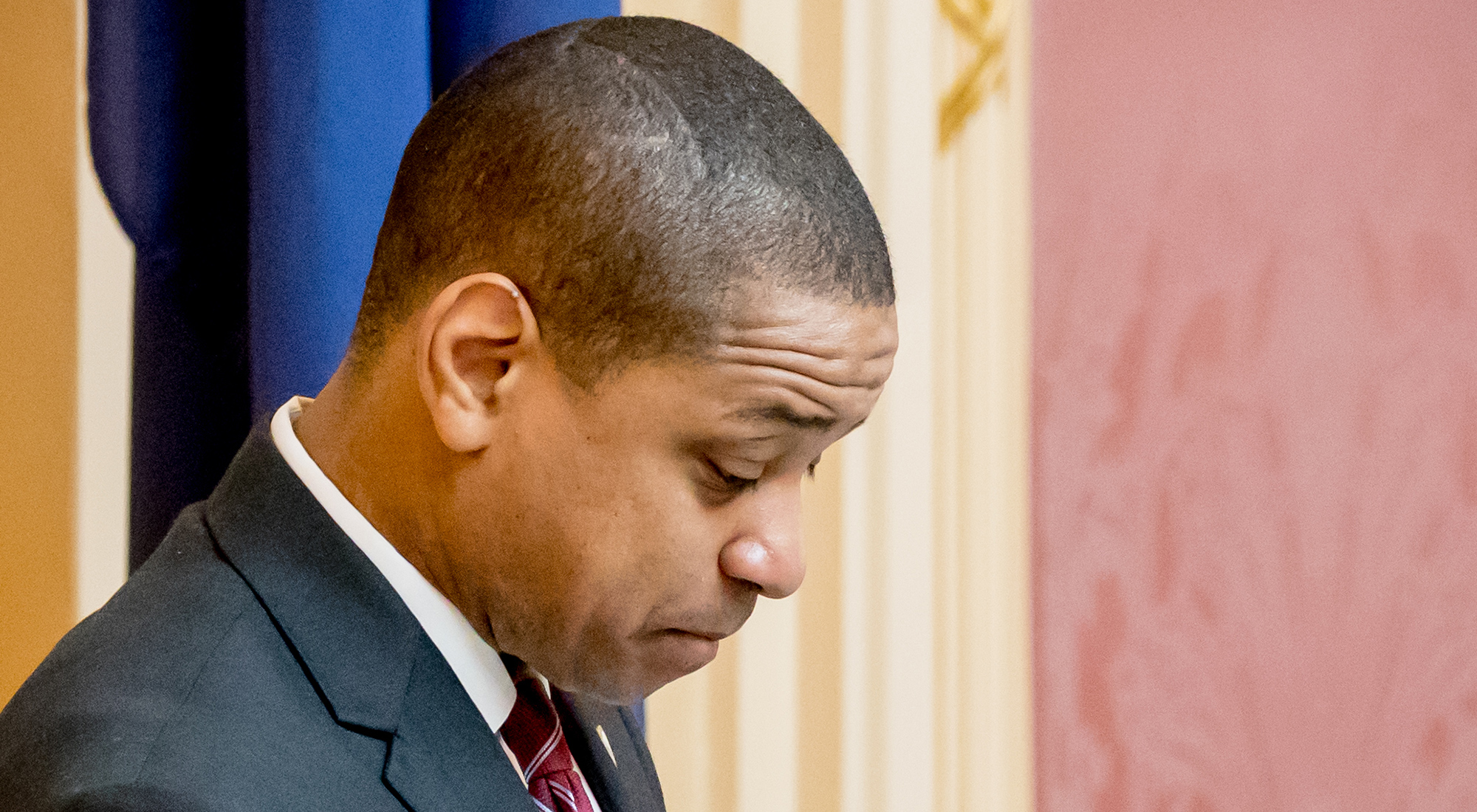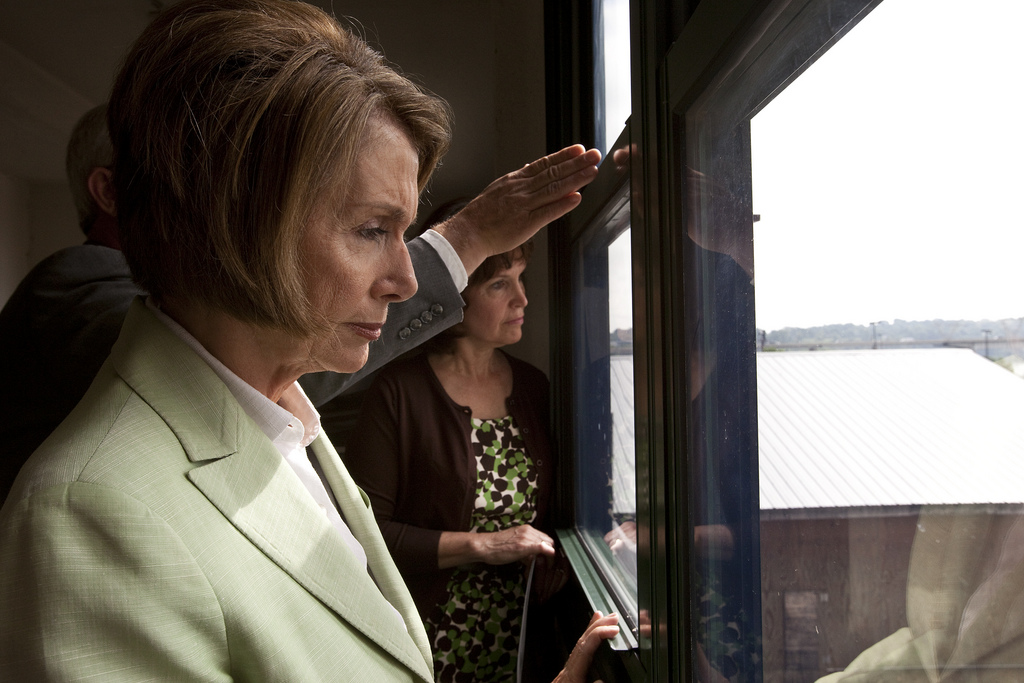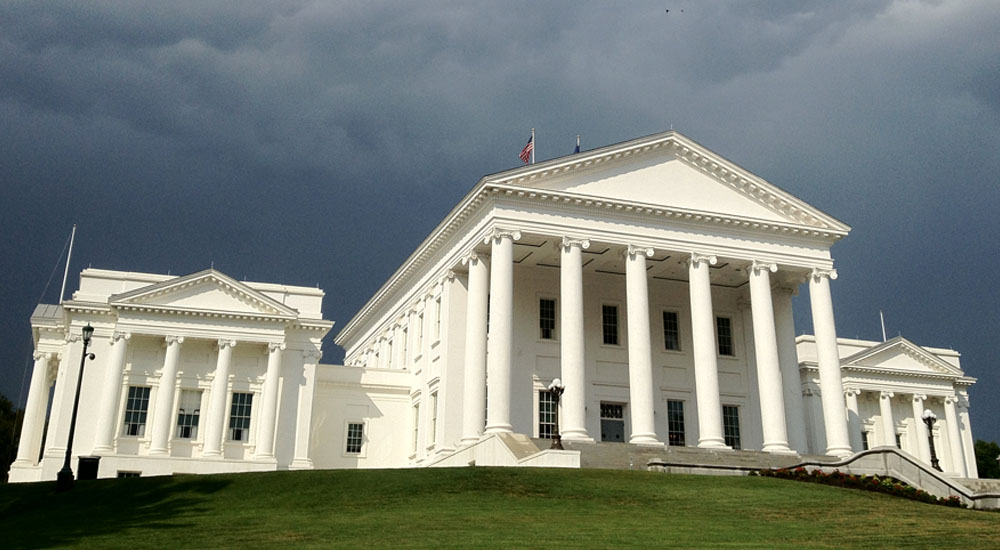It has been over a month since Virginia politics was plunged into chaos, beginning with photos surfacing of Governor Ralph Northam (D) reportedly appearing in a racist photo in his 1984 Eastern Virginia Medical School (EVMS) yearbook, and of his head shot in his Virginia Military Institute (VMI) yearbook with the nickname “Coonman,” a racial epithet, appearing below. In the weeks following, the governor has be subject to multiple protests outside the Executive Mansion in downtown Richmond as nearly every lawmaker in the Commonwealth has called for his immediate resignation.
While protests against racial injustice pepper the political landscape, it is quite precarious that no protests – not one – have formed to air disgust against the sexual assault and rape allegations levied against Lieutenant Governor Justin Fairfax (D), especially in the “#MeToo” era.
Just days after Northam’s sandal began, Fairfax’s past actions were made aware to the public, causing turmoil in Richmond in the middle of the 2019 legislative session.
Dr. Vanessa Tyson, a professor at Scripps College in California, gave a very graphic description of the sexual assault she alleges against Fairfax that occurred at the 2004 Boston Democratic National Convention.
In her statement published by the New York Times, Dr. Tyson said she came forward after the news of Fairfax’s likely elevation to the top political position in Virginia – if Northam were to answer the widespread calls for his resignation – because it “flooded” her with “painful memories, bringing back feelings of grief, shame, and anger that stemmed from an incident with Mr. Fairfax.”
“What began as consensual kissing quickly turned into a sexual assault,” she said.
“Mr. Fairfax put his hand behind my neck and forcefully pushed my head towards his crotch. Only then did I realize that he had unbuckled his belt, unzipped his pants, and taken out his penis. He then forced his penis into my mouth. Utterly shocked and terrified, I tried to move my head away, but could not because his hand was holding down my neck and he was much stronger than me. As I cried and gagged, Mr. Fairfax forced me to perform oral sex on him. I cannot believe, given my obvious distress, that Mr. Fairfax thought this forced sexual act was consensual. To be very clear, I did not want to engage in oral sex with Mr. Fairfax and I never gave any form of consent. Quite the opposite. I consciously avoided Mr. Fairfax for the remainder of the Convention and I never spoke to him again.”
When news of the allegations surfaced, Fairfax, in a tweeted statement, called the accusations “false and unsubstantiated” and a “totally fabricated story.”
In the height of the “#MeToo” movement, although he reiterated “how important it is for us to listen to women” during a press conference, an NBC News reporter caught Fairfax saying “f*** that b****” as he tried to discredit Dr. Tyson during a private meeting later that night.
“Mr. Fairfax has tried to brand me as a liar to a national audience, in service to his political ambitions, and has threatened litigation. Given his false assertions, I’m compelled to make clear what happened,” Dr. Tyson added in her statement, defending herself and her reputation against the lieutenant governor.
Fairfax then faced a second accusation of sexual misconduct, dating back to his time as an undergraduate student at Duke University. The accuser, Meredith Wilson, a junior at the North Carolina College when Fairfax was a senior, claimed Fairfax raped her in 2000, issuing a statement through her attorneys characterizing the alleged attack as “premeditated and aggressive.”
According to a press release from New Jersey law firm Smith Mullin, P.C., Wilson’s attorneys stated:
“We serve as counsel for Meredith Watson, who was raped by Justin Fairfax in 2000, while they were both students at Duke University. Mr. Fairfax’s attack was premeditated and aggressive. The two were friends but never dated or had any romantic relationship.
Ms. Watson shared her account of the rape with friends in a series of emails and Facebook messages that are now in our possession. Additionally, we have statements from former classmates corroborating that Ms. Watson immediately told friends that Mr. Fairfax had raped her.
Ms. Watson was upset to learn that Mr. Fairfax raped at least one other woman after he attacked her. The details of Ms. Watson’s attack are similar to those described by Dr. Vanessa Tyson.
At this time, Ms. Watson is reluctantly coming forward out of a strong sense of civic duty and her belief that those seeking or serving in public office should be of the highest character. She has no interest in becoming a media personality or reliving the trauma that has greatly affected her life. Similarly, she is not seeking any financial damages.
On behalf of our client, we have notified Justin Fairfax through his attorneys that Ms. Watson hopes he will resign from public office.”
The rape allegedly took place at at the Alpha Phi Alpha fraternity house, as reported by the New York Times. Fairfax denied the allegation, again refusing to resign, saying in a statement that a “vicious and coordinated smear campaign is being orchestrated against me.” He also accuser staffers of embattled Governor Northam of being the source of the allegations.
Immediately afterwards, the lieutenant governor was asked by Duke University to resign from the institution’s Board of Visitors.
With the job of lieutenant governor being a part-time position, Fairfax’s joined San Franciso-based law firm Morrison & Foerster in early 2018, and following the scandal, the firm placed him on paid leave.
“We take the allegations against Justin very seriously. As a firm, we believe that it is important to seriously listen to any allegation of sexual assault or harassment, and to treat all persons making such allegations with respect and sensitivity,” the firm’s Chairman Larren Nashelsky said.
Questions have also been risen about Zakiya Thomas, the architect of Fairfax’s meteoric rise to power and the first African-American woman to successfully run a statewide campaign in Virginia, about what she may have known regarding the allegations, and why she seems to be flying under the radar at the moment.
Although Fairfax continues to call for an FBI investigation into the sexual assault allegations, it is unclear why he is proceeding that route. As a former U.S. attorney for the Eastern District of Virginia, he must know that the FBI has no jurisdiction in the matter because the alleged incidents are neither federal crimes, nor is the investigation within the agency’s extent of background checks for certain federal officials.
Regardless, House Speaker Kirk Cox (R-Colonial Heights) called for a legislative investigation into the allegations – even inviting Fairfax’s accusers to testify – just a week after Delegate Patrick Hope (D-Arlington) attempted to introduce articles of impeachment against Fairfax nearing the end of the 46-day session in Richmond. The effort stalled following pushback by House Democrats, who remain divided over how to handle the multiple allegations, also insisting that an investigation will not move forward at the present time.
A spokesperson for Fairfax has also relayed that the lieutenant governor has voiced skepticism about a General Assembly investigation, stating that he “believes that an inherently political process is not the most likely path for learning the truth.”
During a speech in the State Senate, referencing legislation the General Assembly passed this year expressing “profound regret” for lynchings in Jim Crow-era Virginia between 1877 and 1950, Fairfax even compared his situation to those who were victims of lynchings.
“I’ve heard much about anti-lynching on the floor of this very Senate, where people were not given any due process whatsoever, and we rue that,” he said, sending shock through the legislative body.
Nevertheless, as the dust settles on Richmond, it is quite interesting that while the calls for Fairfax to resign are continuing, the protests that have blanketed Northam’s reputation have been absent for Fairfax.
Has “#MeToo” forgotten?






